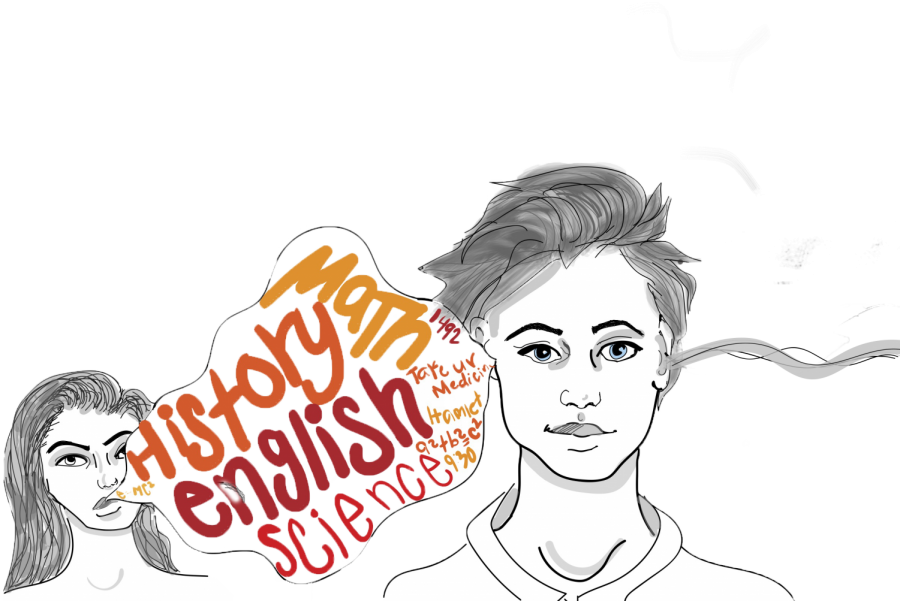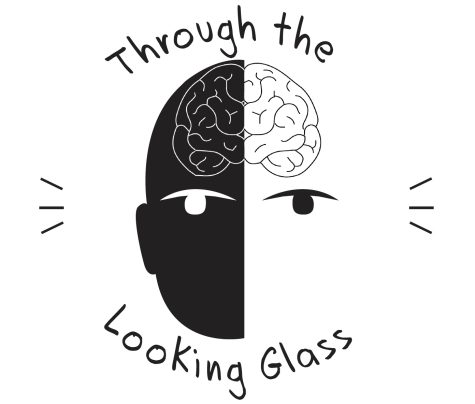ADHD
Real. Fake. Exploited. Underdiagnosed. Overmedicated. Undertreated. Controversial. Nearly everyone has an opinion about ADHD, but few people truly understand it.
“I thought it was early Alzheimer’s,” upper school history teacher Dr. Marianne Leung said. “I could not remember. People were saying ‘We talked about that yesterday’ and I had no memory of that. I wasn’t paying attention, so I never heard it. I had not forgotten. It is just my mind was not there.”
After going to the doctor, Dr. Leung was diagnosed with Attention-deficit/hyperactivity disorder (ADHD) in 2011. Most people are diagnosed in elementary school, but Dr. Leung was not diagnosed until after graduating from college, obtaining her Ph.D. in history and teaching for over 30 years. Because she was diagnosed much later than normal, Dr. Leung did not realize that people without ADHD do not struggle with memory like she does, such as keeping track of their stuff or remembering small tasks they have to do.
“I have lived much of my life like that, but I thought it was normal,” Dr. Leung said.
As a child, Dr. Leung said that teachers noticed her extra energy, but no one connected it to ADHD.
“Teachers were always asking me ‘why are you in such a hurry’ and I would always say ‘I was 5 weeks early in birth’ because I didn’t understand why,” Dr. Leung said.
Unlike Dr. Leung, junior Austin Wall was diagnosed with ADHD when he was a toddler.
“I was diagnosed early on, but I didn’t question it. I didn’t know what I had until I was about 9 years old,” Wall said.
Wall believes his early diagnosis was helpful because he was able to realize that he had to work harder to focus than others without ADHD.
ADHD is a neurodevelopmental disorder that causes difficulty concentrating, hyperactivity and impulsivity, according to Great Ormond Street Hospital for Children NHS Foundation Trust.
“ADHD is an imbalance of chemicals in the brain that makes it difficult to not only control your impulses, but also makes it very difficult for you to concentrate and remember tasks on a more short-term,” pediatric resident Dr. Tina Abrams said.
Attention deficit disorder, or ADD, has the same symptoms as ADHD without the hyperactivity, or “H,” of ADHD.
Many recognize inattentiveness and hyperactivity as symptoms of ADHD, and while those are some common signs, more difficult conditions can also occur with ADHD.
According to the National Resource Center on ADHD, more than two-thirds of individuals with ADHD have at least one coexisting condition. There are more well-known conditions, like learning disorders, but then there is also a series of less known conditions, including Tourette’s syndrome, bipolar disorder, anxiety, depression, oppositional defiant disorder and substance abuse. These coexisting disorders can contribute to a higher number of students with ADHD getting into trouble.
Upper school learning specialist Dr. Brenda Monk believes that it is possible that ADHD can contribute to students getting in trouble with the school more often.
A reason behind this is one of the main symptoms of ADHD: lack of impulse control. On top of that, kids with ADHD can also have conduct disorder, one of the many possible coexisting conditions. People diagnosed with conduct disorder are more likely to lie, steal, skip school and fight.
Recent studies conducted by Harvard University found that children with ADHD have under-developed frontal lobes, the part of the brain that controls impulse control and judgement, which can lead to poorer decision making.
“If you got an ADHD student, especially boys, and they go to college at 18 and they drink too much, or they party too much and they don’t go to class,” Dr. Monk said, “part of that is due to the fact that the frontal lobe is acting like a 14 year old, and it is not acting as an 18 year old.”
That being said, not everyone who has ADHD always gets in trouble, and Dr. Leung believes it should not be used as an excuse, but seen as an explanation of behavior.
“ADHD is a combination of disorders. It affects a lot of different ways in learning, and it’s different for every child. There’s never going to be two students that are going to be exactly alike with their needs and being identified as ADHD,” Dr. Monk said. “Some of the students that are identified as ADHD students are “A” students with accommodations. They’ve been valedictorian, salutatorian. They’ve gone on to be doctors and lawyers and all sorts of things.”
For most kids with ADHD, the condition just makes it harder to learn, a reason students with ADHD are provided with accommodations like extended time on exams and tests. Usually, the main symptoms of ADHD, inattentiveness and hyperactivity, can be controlled by taking prescribed medicine. “I can’t really focus on a certain thing necessarily, especially in the classroom, but when I take my medicine, it’s completely different,” junior Sidney Marr said. “I can listen more, and I tend to focus a lot more.”
Some of the most common prescription medicine for ADHD is Ritalin, Adderall and Vyvanse. There are few differences between the drugs, all of which are stimulants used to help alleviate the symptoms of ADHD.
For most kids with ADHD, medication is extremely helpful. Without it, some students could be unable to succeed in school.
“I would rather procrastinate until the day I die because I hate, I hate doing homework when I’m off my medicine,” Marr said. “I can do work for hours when I’m on it, but when I’m off a bit, I don’t want to do it at all. It’s so hard for me to focus.”
Medications can pose challenges as well. Some of the side effects of Vyvanse, for instance, are difficulty eating, irritability and loss of personality. Other drugs have been known to cause difficulty sleeping and headaches.
Junior Sara Matheson used to take Vyvanse but her mom forced her to stop because of the toll it was taking on her health.
“My medicine, it’s appetite-suppressant, which means your body rejects food. I would have to force myself to eat because when you eat it makes you feel sick,” Matheson said. “I dropped tremendous weight, and my doctor said this is very unhealthy and so I just finally came off medicine.”
Marr has experienced similar side effects.
“I take Vyvanse too, and it cuts my appetite and I don’t eat lunch sometimes,” Marr said, “but I’ll have to force myself to eat or else I’ll lose a lot of weight.”
On top of not wanting to eat, ADHD medication can also alter people’s personalities.
“I was usually going around, talking to the teacher, talking to my friends,” Matheson said, “and whenever I take my medicine, it’s like my personality is wiped off. I don’t speak, I sit and I do my work and that’s all I do. ”
Despite these negative side effects, Marr still believes taking medication is worth it.
“If I don’t take my medicine, I make very stupid mistakes on school work,” Marr said. “I think that the medicine benefits that because it helps me focus on little things that are also very important.”
While medicine is the normal course of treatment for children with ADHD in the U.S., some countries do not agree with the practice. In fact, some countries do not believe in ADHD.
According to Psychology Today, less than 0.5 percent of children in France are diagnosed with ADHD, compared to America’s 11 percent of children ages 4-17 diagnosed. It is not that France has fewer children with ADHD, but it is seen as a medical condition that has psycho-social and situational causes instead of a biological-neurological disorder like in the U.S. Instead of prescribing medicine, French doctors look for underlying causes in the child’s environment, such as fighting parents or bullying, that could cause the child stress. According to Psychology Today in France, ADHD is thought of as temporary acting-out in response to a stressful situation occurring in a child’s life, not a real disorder.
Marr, who spent half of her junior year in Romania, can testify to the lack of acknowledgement of ADHD there.
“It’s just so different. [St. George’s] knows that people have it. They know that people struggle with this, so they can address it immediately,” Marr said, “but in Europe, they don’t think it’s that big of a deal. They think that it wears off, that it’s just a childhood thing. They think you just grow out of it.”
While the study at Harvard University found that individuals with ADHD have parts of the brain that are five to ten percent smaller compared to kids without ADHD, people can have a harder time believing mental conditions exist since they cannot be seen physically.
“You see the person that’s blind. It’s a visible disability, but these are invisible disabilities,” Dr. Monk said. “I think because a lot of people cannot see the face of the disability, that they have a hard time identifying it as being real.”
In areas that do recognize the disease, medication is often the prescribed treatment.
Over six percent of American children diagnosed with ADHD are taking medication while only one percent of those diagnosed in the UK are, according to the Guardian. According to the National Institute of Mental Health, 7.5 percent of American children between ages 6 and 17 were medicated for “emotional or behavior difficulties” in 2011-2013.
Some worry that medication can be a dangerous, short-term solution, leaving children without the real skills to handle situations.
“Europe believes that kids are overmedicated here, and I think some of that is true,” Dr. Leung said. “If you want medication to help you with organizational skills and so on, you actually don’t know how to organize on your own because when you take it [the medicine] away, you still don’t have the skills.”
Research shows that the increasing prevalence of prescription drugs is causing a rise in abuse. National Survey on Drug Use and Health found that one in every 12 teens ages 12 to 17 suffered from a substance use disorder in 2014. While these statistics include alcohol, marijuana and other illicit drugs, they also include the use of unprescribed ADHD medication.
Some high school and college students illegally take ADHD medication believing that it will help them do better in school. According to CNN, as many as 30 percent of students in college use stimulants non-medically. Matheson’s older brother attended Mississippi State and saw other students abusing ADHD medicine while in college.
“My brother has friends that somehow got their hands on Vyvanse, and they said ‘It doesn’t work, it just kept me up.’ So the people who do not have ADD or ADHD do not feel its side effects, except for the eating and the keeping you up,” Matheson said. “But otherwise, it doesn’t really help you, so the fact that you’re going to spend all your money on stuff like that, it doesn’t really help you.”
On top of it being illegal, taking ADHD medicine without a prescription can be extremely dangerous. Most ADHD medications are stimulants, which is why one of the side effects of taking it is staying awake. Stimulants work similarly to caffeine, raising levels of physiological or nervous activity in the body, including one’s heartbeat.
“Some people can have different reactions to the stimulant. If you have an underlying heart problem, your heart could stop,” Dr. Abrams said. “You can pass out, you can throw up, you can feel terrible, you can have it almost feel like you’re having a panic attack if you take it and you don’t need it, so you can have pretty significant emotional reactions to it as well.”
Despite these side effects, CNN found that 81 percent of 1,800 college students interviewed thought taking ADHD medication without a prescription was “not dangerous at all” or “slightly dangerous.” Unknown to many, ADHD medications are classified as Schedule II substances, which the Drug Enforcement Administration defines as “drugs with a high potential for abuse, with use potentially leading to severe psychological or physical dependence.” Other Schedule II substances include cocaine and methamphetamine.
This status is why there are strict rules in place for who is eligible for ADHD medicine, how often they can get medication and from where they can receive it. Because of abusers, it is much harder for diagnosed people to pick up their prescribed medicine. Dr. Leung knows firsthand the difficulties of picking up medication.
“If I request my medication to be filled, I cannot go two days early before my pills are out, not one day early, on the day, which makes it pretty tight sometimes,” Dr. Leung said. “If I have to travel, they make me feel like I’m a criminal or something to ask for five extra pills ahead of schedule.”
This stringency over picking up prescriptions can make people who take the medicine feel uncomfortable, especially when it can put patients at odds with their physicians.
“I went to the doctor one time and in front of everybody, the nurse was accusing me of using too many pills. She had counted wrong and I had not, so I said ‘How dare you talk to me like that? I’m not an abuser,’” Dr. Leung said. “But apparently a lot of people are, so they are very strict.”
Despite the availability of medicine to treat ADHD and its acceptance in American society, there are still people who are afraid of being diagnosed.
Some people may realize they have ADHD, but choose not to get tested because they do not want to accept that they have a disorder.
“Back twenty, thirty years ago, no one wanted to say that they might be different and that they might need accommodations, so it was a hidden disability,” Dr. Monk said. “I think as we have opened it up with the media and with just bombarding the world with all of the information that we can about [ADHD], it has become less of a stigma.”
Dr. Monk has learned that ADHD does not limit a student’s ability to succeed. In fact, ADHD even can help students succeed in life; research shows that people with ADHD are more creative and artistic than people without it because kids with ADHD have a hard time shutting down their “imagination network,” leading them to constantly develop new ideas or thoughts.
“Once I sit down, the ideas just come to me real fast, and I’m not afraid to act on them,”Dr. Leung said.
Sometimes having such an active brain can cause problems.
“It’s kind of a curse and a blessing. The brain is firing a hundred different ways at the exact same time,” Matheson said. “So your mind is constantly thinking, but it’s kind of annoying because you can’t get your mind shut up.”
Dr. Monk believes kids who are diagnosed with ADHD should not think of it as a disorder, but a gift. When talking with students who are diagnosed with ADHD, Dr. Monk likes to tell them about Steve Jobs, a man with ADHD whose many ideas were able to change the world forever.
“It’s a positive part when I talk about being ADHD and gifted, because it is saying that you have such a strength in how you think and how you react that is beyond someone that maybe doesn’t have the disability,” Dr. Monk said. “That it is truly a gift.”












